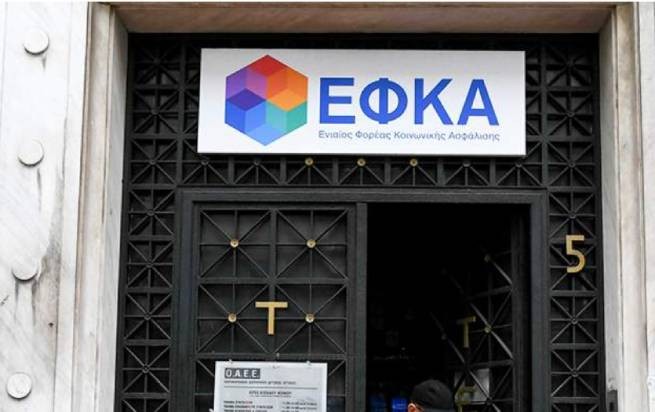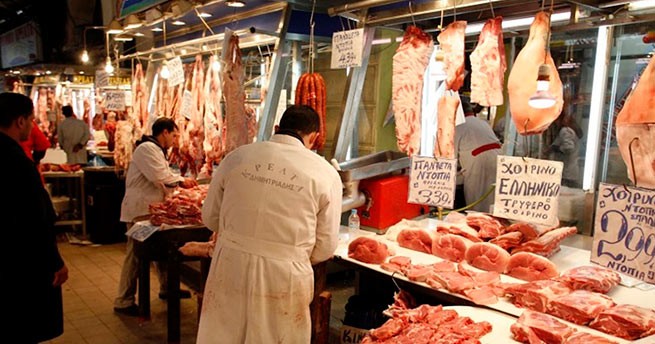According to the decision of the Minister of Rural Development and Food Lefteris Avgenakis, control of meat and eggs will begin on the eve of Easter.
Inspections will begin next week and will be carried out at retail and wholesale outlets, slaughterhouses, at entry points into the country, on highways, etc. The inspection teams will include employees of the main veterinary and food departments of the Ministry of Food and Agriculture, the Hellenic Safety Authority food products, ELGO, DACs, ELASeconomic police, coast guard, ADSE, SDOE and decentralized administrations.
It is noted that a meeting was held between the Secretary General of the Ministry of Agriculture Georgios Stratakos and representatives of the Federation of Butchers and the Interprofessional Butchery (EDOTOKK). The control is aimed at protecting Greek products and producers, ensuring the quality of products in circulation and protecting the consumer. At the same time, control of dairy products, fruits and vegetables continues, and control of olive oil and honey has also begun.
Avgenakis: We will tirelessly implement the law
Minister of Rural Development and Food Lefteris Avgenakis said: “This is a government decision, implemented through the Ministry of Agriculture and Rural Development, to strengthen controls at the market, at entry gates and wherever necessary, in order to protect Greek products in every possible way. By protecting Greek products in practice, we support farmers, livestock farmers, fishermen and beekeepers, honest processors and traders, as well as protecting consumers, but due to Easter there will be more frequent monitoring. We will be diligent in enforcing the law. The only people who need to worry about this are those who break the law. “We will not allow this. The ax will be heavy, and everyone must remember that.”
Dairy Product Inspections
Checks are carried out not only at retail outlets and supermarkets, but also at the entrance to the country – at ports and at borders. Today, when checking milk and processed products (cheeses, dairy products, etc.), the main attention is paid to not only quality, but also product labeling, i.e. whether the content of the specified information and whether the labeling complies with national laws and regulations EU. Product samples are selected and sent for examination to the laboratories of the Main State Laboratory and ELGO-DIMITRA, depending on the type of examination carried out.
Depending on the results of the study, if and when they are received, they are sent to the Directorate General of Food, EFET and ELGO-DIMITRA to begin the sanctions procedure. Violators are informed of this and then, following an appeal, to which they are entitled, i.e. Once the decision has become final, a fine is imposed and the offender is notified. In addition to sampling through exceptional inspections carried out by mixed teams, on-site inspections are carried out on dairy farms.
In retail outlets in Athens, Thessaloniki, Larissa, Patras, Volos and Ioannina, checks were carried out at 85 retail outlets, where 177 samples were sent for analysis, of which 103 were sent to the General State Laboratory (GCH) and 74 to the laboratories of ELGO Dimitra.
267 samples were selected for labeling and sent to EFET (32 for FETA, 113 for other cheeses, 51 milk, 64 yogurt, 3 ariana, 3 kefir and 1 cream) and 36 to ELGO-DIMITRA (9 FETA, 20 for yellow cheese, 3 for milk, 1 for yogurt dessert, 1 for yogurt and 2 for kefir). Upon entry into Greece the following checks were carried out:
- In the port of Igoumenitsa, 75 inspections were carried out, all on tankers transporting dairy products.
- At the port of Patras, 63 checks were carried out (21 on containers with dairy products and 42 on cargo with cheese).
- In Promachonas, 4 inspections were carried out, all on tankers transporting dairy products.
It should be noted that special attention is paid to the control of PDO products such as FETA, which are identified with Greek production. Five inspections were carried out on dairy farms, with on-site visits to check residues (Alexandroupoli, Kilkis, Tripoli, Chalkidiki).
Checking fruits and vegetables
Similar checks have been carried out on fresh fruits and vegetables. In particular:
- 297 checks (Attica, Thessaloniki, Larissa, Volos, Ioannina, Patras).
- In organic products: 33 inspections (Attica – 24, Larissa – 2, Volos – 5, Thessaloniki and Voula in the organic markets).
- Laboratory tests for pesticide residues – 28 (Attica – 24, Thessaloniki – 4).
- 21 inspections at standardization and packaging enterprises.
- 194 checks in the ports of Patras, Igoumenitsa, Promachonas and on toll roads.
In the area of fruits and vegetables, control concerns apples and potatoes, control of oranges and tangerines has begun, and control of kiwi fruit continues.
Checking olive oil and honey
As of March 15, 2024, mixed groups are testing olive oil and honey. A total of 22 olive oil samples and 16 honey samples were selected. In particular, 14 olive oil samples were taken by EFET to check the quality, authenticity and labeling standards, which were sent for chemical and organoleptic testing to the laboratories of the General Secretariat of the Ministry of Health, EFET, ELGO DIMITRA and DIMEA; 3 samples for control authenticity and falsification, which were sent for chemical control to the laboratories of EFET and 5 samples of olive oil from ELGO DIMITRA, which were sent for laboratory analysis to its laboratory. For the honey, 16 samples were selected by EFET to check quality, authenticity and adulteration and sent to MSF for analysis.
It should be noted that all of the above applies to extraordinary inspections that complement the usualincluded in the annual programs of the Ministry of Rural Development and Food, ELGO-DIMITRA and EFET.
Check results
In the dairy sector, out of 103 samples to date, 86 have been sent to the FVO, of which 57 have been analyzed. In 55 samples, no problems were found, while one sample was adulterated with cow's milk, another had a moisture content higher than the established one, and 9 samples showed non-compliance with the labeling requirements of regulation 1169/2011.
Regarding labeling: EFET examines 267 samples, of which 249 are various dairy products. To date, the examination of 175 samples has been completed and 78 inconsistencies have been identified, which relate to incorrect or incomplete indication of mandatory designations on packaging, failure to indicate the origin of milk, country of origin, production permit number and incorrect labeling of PDO products. Identified violations:
- Exclusive inspections of fruits and vegetables led to the seizure of two consignments of potatoes in Athens and Thessaloniki (green potatoes).
- A case is currently being investigated regarding the possible illegal import of imported kiwifruit from Iran (due to sanctions).
- A discrepancy has been identified regarding the indication of country of origin on potato labels.
39 inconsistencies were identified:
- 26 inconsistencies in wholesale and retail businesses.
- 10 non-conformities were found in standardization and packaging institutions.
- 3 inconsistencies were identified in Promakhon.
As of 01/01/2024, fines totaling 170,000 euros have been imposed on 16 companies. Companies involved in the sale of fresh fruit and vegetables received 57 recommendations, mainly on labeling and packaging.
More than 300 recommendations sent and received throughout 2024 to traders, wholesalers and agricultural exporters to ensure they comply with the Department of Agriculture, Food and Rural Affairs' online platform, the Fresh Fruit and Vegetable Traders Register (FFHEO).
PS Another thing is surprising: why at such “thorough check” Do many vegetables and fruits at farmers' markets and supermarkets have significantly higher levels of nitrates and pesticides?







More Stories
Conditions for early and full retirement
Zakynthos: the famous “Shipwreck” beach is closed again this year
Riots in Athens, police used tear gas and batons (video)